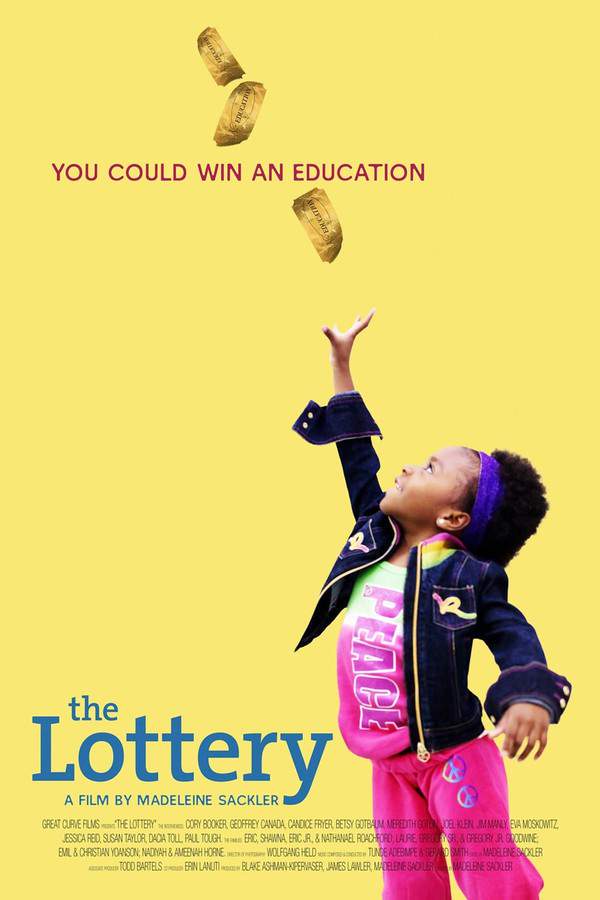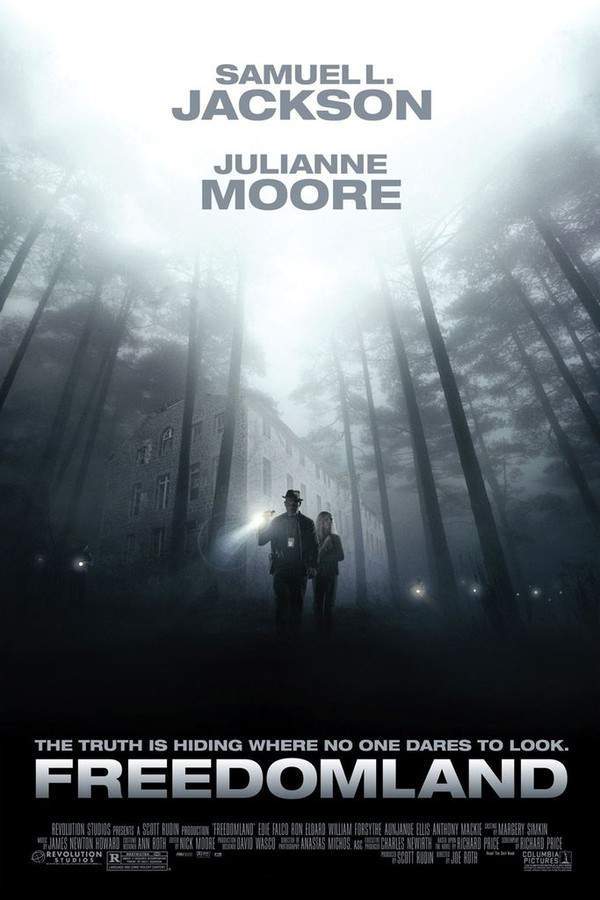
The Lottery 2010
Directed by

Madeleine Sackler
Made by

Gravitas Ventures
Test your knowledge of The Lottery with our quiz!
The Lottery Plot Summary
Read the complete plot summary and ending explained for The Lottery (2010). From turning points to emotional moments, uncover what really happened and why it matters.
Details of modern small-town American life intertwine with the unsettling tradition of an annual event known as “the lottery.” In a quaint, unnamed village with a population of approximately 300, residents buzz with anticipation and anxiety on June 27. Children gather stones while adults prepare for this long-standing ceremony, believed to ensure a bountiful harvest. Old Man Warner shares an old saying: > “Lottery in June, corn be heavy soon.” Yet, whispers circulate about nearby villages that have abandoned this grim custom, and speculation abounds that others might soon follow suit. Still, some villagers insist that this ritual should continue, as it has historically.
As the preparations unfold, we see coal merchant Mr. Summers and postmaster Mr. Graves work tirelessly the night before, compiling a list of all the extended families in the area and creating one paper slip for each. These slips, carefully folded, are placed inside an age-worn black wooden box, kept secure in Mr. Summers’ office until the lottery begins.
The first drawing aims to select one family, and a wave of relief washes over those not chosen. In one instance, a family sends word to their injured father to share the good news that they were not picked. However, it is Bill Hutchinson who draws the only marked slip, leading to his wife Tessie’s outcry that he was hastily pressured into making his selection. Since the Hutchinsons are a single household, the drawing for a household is bypassed.
Now, during the final draw, each member of the Hutchinson family—Bill, Tessie, and their three children—has a slip placed in the box. As the five draw their slips, tension mounts until Tessie discovers she has drawn the marked one. In a horrifying turn of events, the townsfolk—including Tessie’s young son Davy—gather the stones they had collected and begin to hurl them at her, while Tessie desperately cries out about the unjust nature of the lottery.
The Lottery Timeline
Follow the complete movie timeline of The Lottery (2010) with every major event in chronological order. Great for understanding complex plots and story progression.
Preparation for the Lottery
As June 27 approaches, the residents of the small town prepare for the annual lottery, filled with a mix of excitement and dread. Children gather stones while adults contribute to the event’s arrangements, highlighting the community's deep-rooted customs and traditions.
Gathering of Families
Mr. Summers, the coal merchant, and Mr. Graves, the postmaster, work late into the night preparing for the lottery. They compile a list of all families in the village and create paper slips, each carefully folded to maintain anonymity.
The Lottery Begins
On the morning of the lottery, tension fills the air as families gather for the ritual. The age-worn black box, used for the lottery slips, is brought forth as the names of the families are about to be drawn.
First Drawing: Family Selection
The initial draw takes place to select one family from the town's population of about 300. There’s a collective sigh of relief among families as the first name is drawn, ensuring they are safe for another year.
Bill Hutchinson's Draw
As the draw progresses, Bill Hutchinson draws the marked slip, marking a turning point in the ceremony. Tessie, his wife, protests loudly, accusing the others of pressuring Bill into drawing, which ignites concern among the villagers.
Hutchinson Family Draw
The tradition dictates that the entire Hutchinson family must now participate in the final draw. Each family member, including Bill, Tessie, and their three children, places their slip into the black box, increasing the stakes dramatically.
Tension Peaks
As the Hutchinson family draws their slips one by one, the atmosphere becomes electric with tension and fear. The villagers watch intently, knowing the fate that a marked slip holds, while Tessie becomes increasingly worried for her family.
Tessie Draws the Marked Slip
In a chilling moment, Tessie draws the slip marked with an ominous symbol, leaving her in disbelief. She protests vehemently, claiming that this lottery is unfair, bringing attention to the harsh reality of the tradition.
Reaction of the Townsfolk
The mood shifts dramatically as the townsfolk, including Tessie's young son Davy, prepare to carry out the dreadful fate that awaits Tessie. This reveals the dark underpinnings of community loyalty and blind adherence to tradition.
The Stoning of Tessie
In a horrifying culmination of the tradition, the townspeople begin to gather the stones they had collected earlier. Amidst Tessie's desperate cries for justice, the villagers hurl stones at her, showcasing the grim reality of societal conformity and the loss of humanity.
Whispers of Change
As the stoning occurs, some villagers reflect secretly on the whispers of other towns abandoning this brutal custom. The contrast between the horrific event and the desire for change highlights the internal conflict within the community.
Old Man Warner's Loyalty
Old Man Warner, a staunch supporter of the lottery, dismisses the idea of abandoning the tradition. He voices his unwavering belief in its necessity for a bountiful harvest, representing the generational divide in ideas about tradition.
The Lottery Characters
Explore all characters from The Lottery (2010). Get detailed profiles with their roles, arcs, and key relationships explained.
Bill Hutchinson
Bill Hutchinson is a pivotal character who unknowingly becomes the harbinger of tragedy for his family. Though initially relieved to be selected as the family representative, his fate changes dramatically when his family draws the marked slip. The torment and conflict he experiences illuminate the pressures of community expectations and the terrifying consequences of tradition.
Tessie Hutchinson
Tessie Hutchinson serves as the film's tragic protagonist, representing the ultimate victim of the town's brutal tradition. Throughout the lottery, she voices her dissent, exposing the irrationality of the ritualistic violence that is accepted by the community. Her desperate cries for justice highlight the human cost of conformity and the heart-wrenching consequences of blindly following tradition.
Mr. Summers
Mr. Summers is the organizer of the lottery, embodying the administrative side of a deeply disturbing tradition. With a calm demeanor, he oversees the preparations, showcasing a detached attitude towards the impending violence. His character reflects the often unexamined roles individuals play in upholding societal norms, even when they partake in acts that contradict human decency.
Mr. Graves
Mr. Graves, the postmaster, plays a crucial supporting role in facilitating the lottery process. His presence as a figure of authority in the village symbolizes the institutionalization of the lottery, further entrenching its normalcy in the community. His character raises questions about complicity and moral responsibility among individuals within a society.
The Lottery Settings
Learn where and when The Lottery (2010) takes place. Explore the film’s settings, era, and how they shape the narrative.
Time period
Modern day
Set in modern times, the film reflects contemporary societal issues through the lens of an age-old tradition. During an era where many communities are questioning the validity of outdated practices, this village remains entrenched in its customs, showcasing the conflict between tradition and progress. The lottery symbolizes the darker aspects of human nature and the power of conformity.
Location
Unnamed village, small-town America
The movie takes place in a quaint, unnamed village in small-town America with a tight-knit community of about 300 residents. Known for its annual lottery event, the village is steeped in tradition, despite the growing unease about the ritual. The serene environment contrasts starkly with the dark undertones of the lottery, highlighting the tension between community cohesion and individual morality.
The Lottery Themes
Discover the main themes in The Lottery (2010). Analyze the deeper meanings, emotional layers, and social commentary behind the film.
⚖️
Justice
The theme of justice is central to the story, as the lottery serves as a horrifying mechanism of societal judgment. Tessie's tragic fate raises questions about fairness and the morality of blindly following tradition. The film critiques how communities can uphold brutal practices in the name of collective well-being, blurring the lines between justice and injustice.
🌾
Tradition
Tradition plays a significant role in the film, emphasizing the tension between cultural heritage and evolving values. The villagers are caught between maintaining their ancestral rituals and the fear of changing times, with whispers of nearby towns abandoning the lottery. This theme highlights the struggle between comfort found in tradition and the need for societal progression.
😱
Fear
Fear permeates the narrative, both in the anxiety surrounding the lottery and the palpable dread among families preparing for the outcome. The children's innocent participation contrasts sharply with the adult understanding of the lethal stakes involved. This theme underscores the ways fear can manipulate societal behaviors and enforce compliance.

Coming soon on iOS and Android
The Plot Explained Mobile App
From blockbusters to hidden gems — dive into movie stories anytime, anywhere. Save your favorites, discover plots faster, and never miss a twist again.
Sign up to be the first to know when we launch. Your email stays private — always.
The Lottery Spoiler-Free Summary
Discover the spoiler-free summary of The Lottery (2010). Get a concise overview without any spoilers.
In the bustling neighborhoods of Harlem and the Bronx, a quiet desperation hums beneath the rhythm of everyday life. The city’s public‑school system, weighed down by chronic underfunding and alarmingly low literacy rates among African American fourth graders, casts a shadow over families that dare to dream of a brighter future for their children. Within this backdrop, the film introduces four distinct families, each carrying its own history of struggle, hope, and resilience, as they confront a shared crossroads.
The centerpiece of their world is the charter school lottery—a fiercely competitive selection process that promises a rare opening into a higher‑quality education. The mere announcement of the lottery stirs a mixture of anticipation and anxiety, turning ordinary hallways and kitchen tables into arenas of whispered strategies and careful calculations. The narrative’s tone balances gritty realism with a lingering sense of optimism, capturing the pulse of a city where opportunity often feels as elusive as a lottery ticket.
Through intimate moments—parents reviewing applications late into the night, children practicing reading drills, and community leaders rallying support—the story paints a portrait of collective yearning. The four families, though different in composition, are united by their unwavering belief that education can be the key to breaking the cycle of underachievement that has long held sway. Their interactions reveal a tapestry of intergenerational dialogue, cultural pride, and the quiet strength that sustains them amid systemic challenges.
As the deadline for the lottery approaches, the film’s atmosphere tightens, colored by the subtle tension between hope and doubt. The city itself becomes a character, its streets echoing with stories of past hardships and future possibilities. In this world, the lottery is more than a bureaucratic procedure; it is a symbol of the fragile, yet powerful, promise that a better education can reshape lives and redefine community destiny.
Can’t find your movie? Request a summary here.
Movies with Similar Twists and Themes
Uncover films that echo the narrative beats, emotional arcs, or dramatic twists of the one you're exploring. These recommendations are handpicked based on story depth, thematic resonance, and spoiler-worthy moments — perfect for fans who crave more of the same intrigue.
Featured on this page

What's After the Movie?
Not sure whether to stay after the credits? Find out!
Explore Our Movie Platform
New Movie Releases (2025)
Famous Movie Actors
Top Film Production Studios
Movie Plot Summaries & Endings
Major Movie Awards & Winners
Best Concert Films & Music Documentaries
Movie Collections and Curated Lists
© 2025 What's After the Movie. All rights reserved.







